The benefits of having a babysitter are indisputable. This person helps parents free up some time for working, running errands, date nights, and much-needed ‘me time’ while their children receive full attention, fun activities, and personal care. However, not all parents are in a position to have one, so they try to find other alternatives, like turning to their family members for childcare.
This woman tried to ask her niece for a babysitting favor, but she refused, as she had done her a huge disservice just previously. Her parents thought the teen was overreacting by not helping her aunt, which pushed her to turn online for unbiased opinions.
Scroll down to find the full story and a conversation with Catherine O’Brien, licensed marriage and family therapist and author at Happy With Baby, who kindly agreed to talk with us more about babysitting for family members.
Not all parents are in a position to have a babysitter, so they turn to people close to them for childcare favors

Image credits: freepik (not the actual image)
This woman turned to her niece, but got blatantly rejected, as she had done her a huge disservice just previously
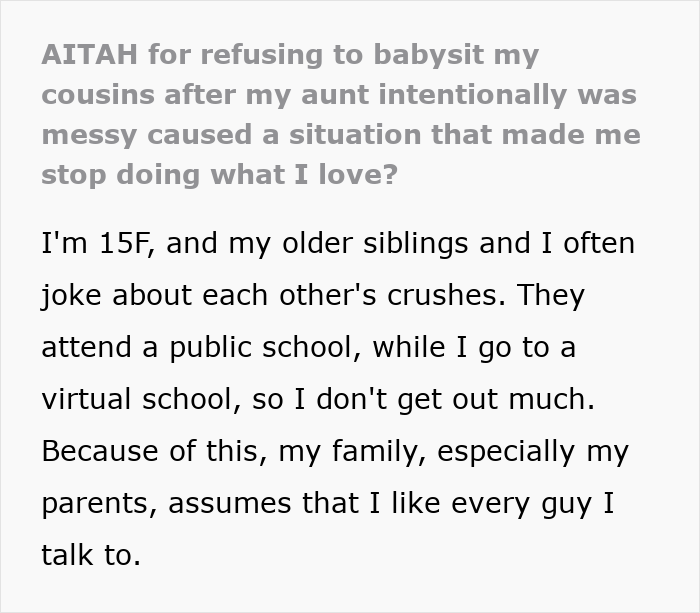



Image credits: tonodiaz (not the actual image)
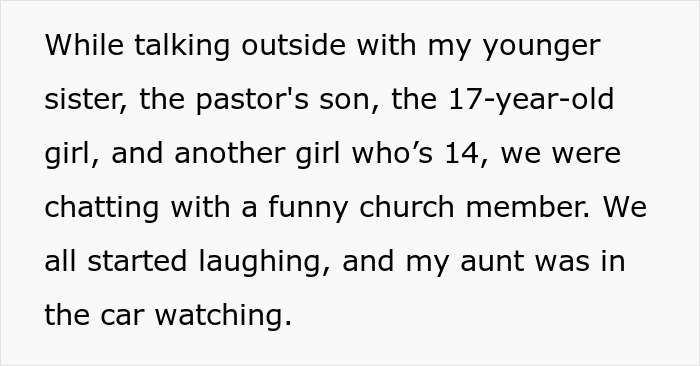

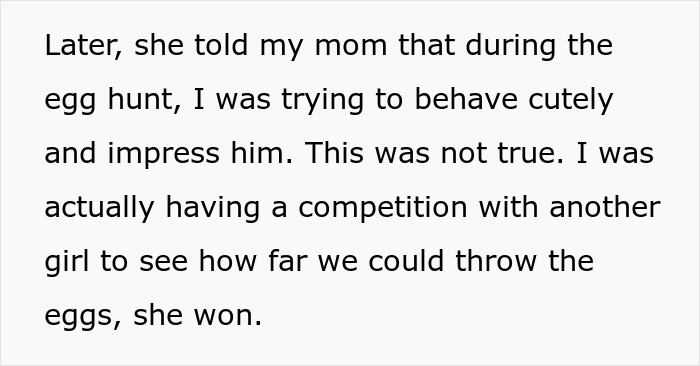


Image credits: kues1 (not the actual image)
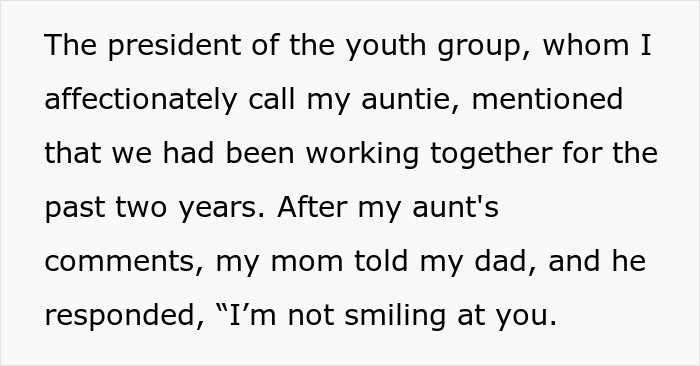

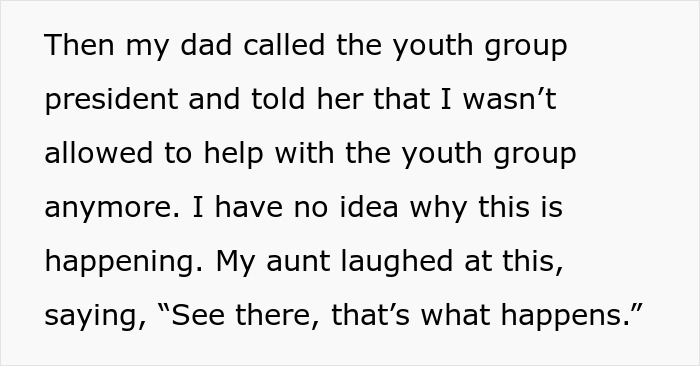
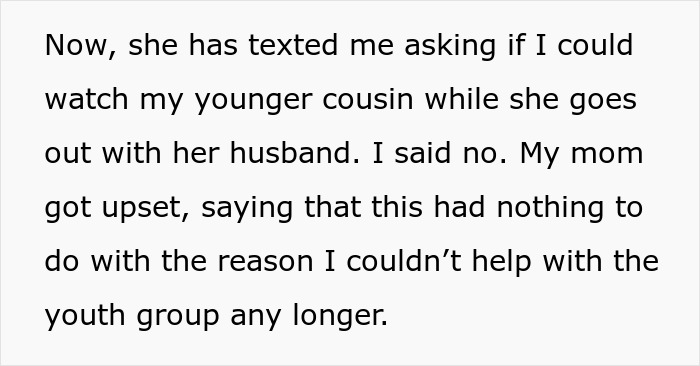

Image credits: Other_Fox_359
It’s never wise to assume that family members will be willing to care for one’s kids
While turning to family for babysitting favors can be convenient for parents, it’s never wise to assume that family members will automatically be willing to care for their kids, says Catherine O’Brien, licensed marriage and family therapist and author at Happy With Baby.
“Healthy family dynamics are built on clear and respectful communication. Assuming someone is willing to help, especially with something as important as caring for children, can lead to misunderstandings or even resentment. Instead, it’s always better to ask directly and kindly. And when someone does offer to help, expressing genuine gratitude goes a long way in strengthening those relationships.”
Some parents might expect that family members babysit their children because they saw the same family patterns happening in the past, explains O’Brien.
“In many cases, it’s a matter of family patterns—maybe caregiving was just something that always happened in the past. I’ve heard parents say things like, “Well, they offered before the baby was born,” or “They helped out with my sibling’s kids, so I thought they’d do the same for me.” There’s often a sense of unspoken expectation rooted in love, but also in stress. Parenting is overwhelming, and sometimes parents hope support will naturally come from within the family. Still, assuming help is available without checking in can create tension and erode trust over time,” she noted.
According to expert, it’s perfectly fine to say ‘no’ to babysitting
To prevent tension, resentment and erosion of trust with family members because of babysitting expectations, it’s beneficial to set healthy boundaries.
“Healthy boundaries are all about being clear and kind. That means sharing what you’re comfortable with—how often you’re able to help, what kind of notice you need, and what your energy allows. It’s perfectly okay to say no, or to say yes with limits. The key is to communicate those boundaries early and respectfully. Strong families thrive on mutual respect—not obligation—and when everyone’s needs are acknowledged, relationships tend to thrive,” says O’Brien.
Just as the expert already mentioned, one of the ways to set a healthy boundary is to say no, which is, of course, easier said than done. That’s why we asked for some expert advice.
“One great tool I often suggest is the Gottman Method’s “soft startup.” It’s a way to begin a tough conversation with kindness and clarity. You might say something like, ‘I care so much about you and the kids, and I truly want to be supportive. Right now, though, I just can’t take on babysitting. But I’d love to help brainstorm other options together,’” suggests O’Brien.
“This kind of approach keeps the relationship intact while gently asserting your boundary. It’s also important to remember that many parents are under a lot of pressure—so even just offering emotional support or helping them think through alternatives can make a meaningful difference,” she concludes.
A lot of readers sided with the teen







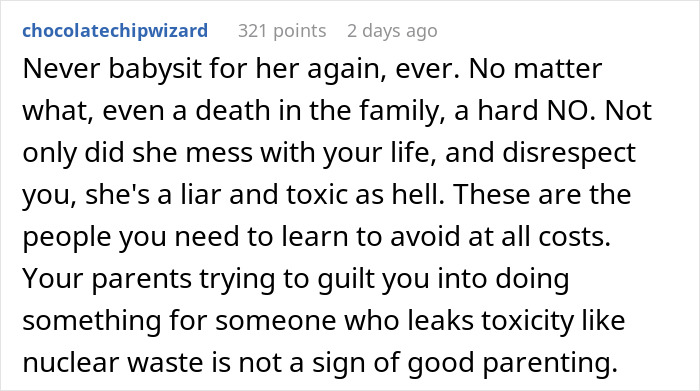



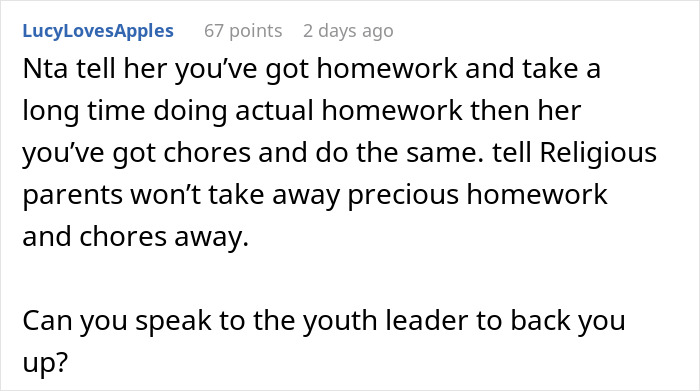



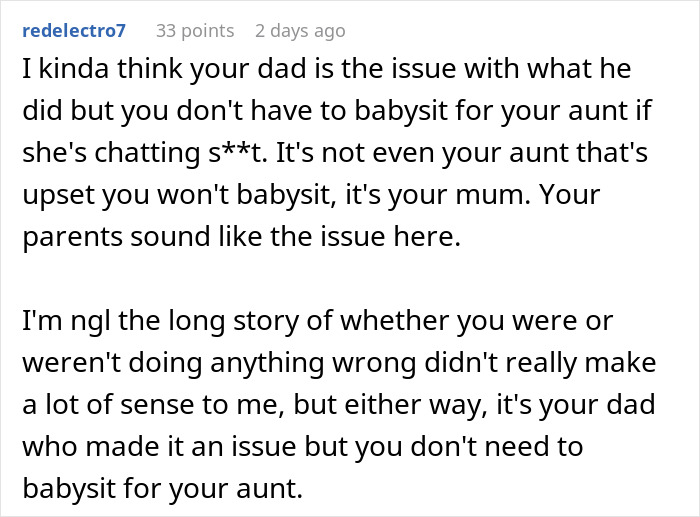









While some thought she was being petty


from Bored Panda https://ift.tt/ZYI3ynj
via IFTTT source site : boredpanda